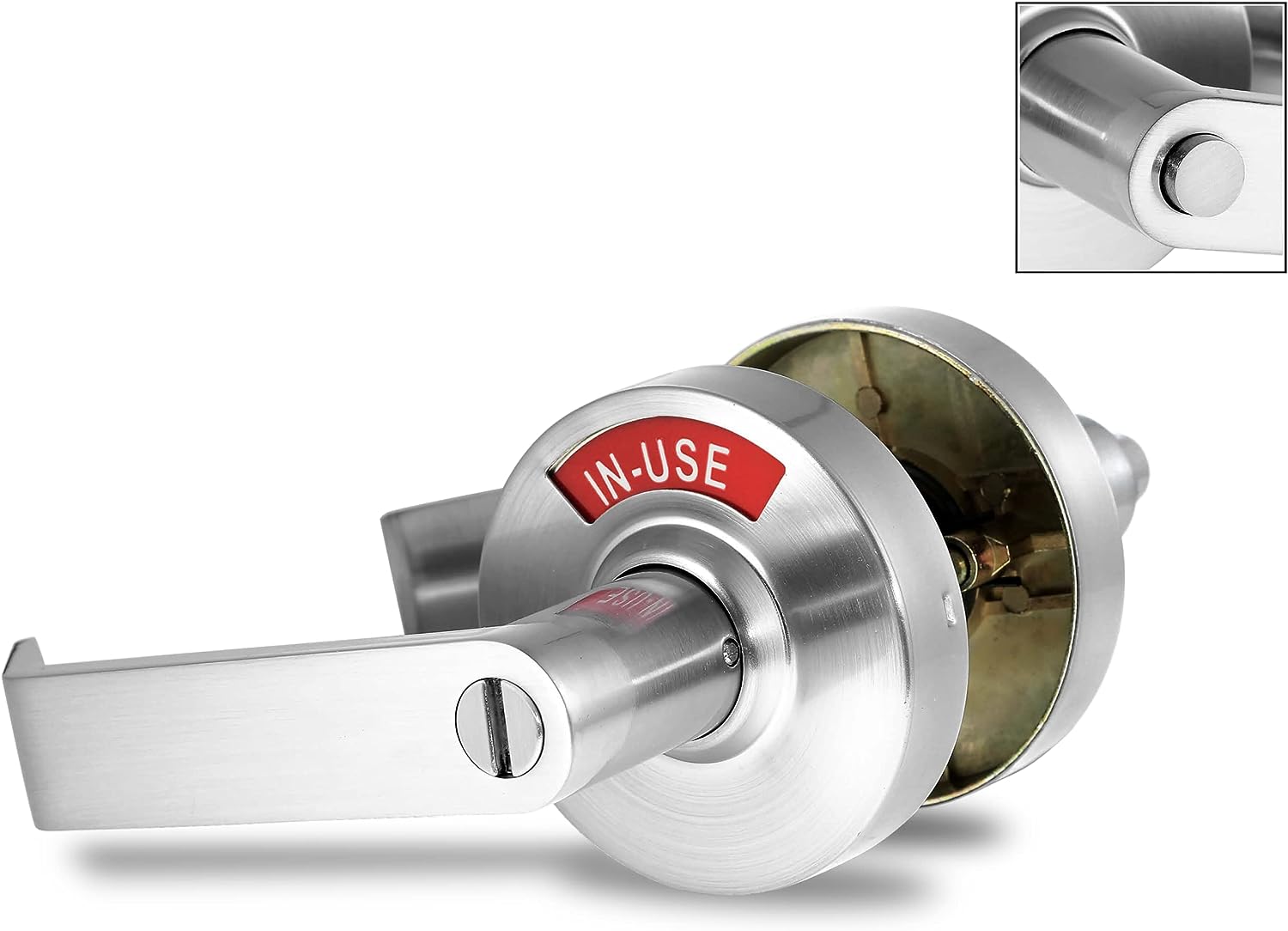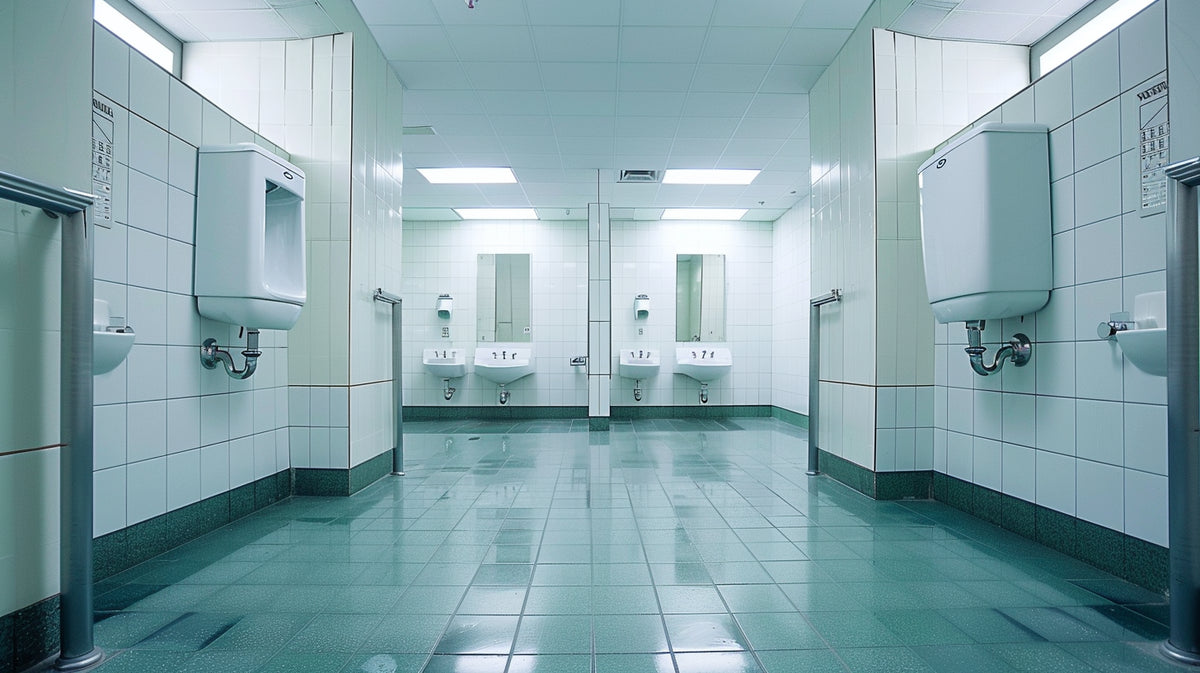In the realm of business, security is not just a precaution; it’s a necessity. With the evolving landscape of threats ranging from break-ins to sophisticated cyber-physical attacks, the importance of robust security measures has never been more pronounced. A fundamental aspect of this security is the physical protection of business premises, where high-security door locks play a pivotal role. These locks are the first line of defense, safeguarding not just the tangible assets but also the data and intellectual property that businesses hold.
In recent years, the advancement in lock technology and design has provided businesses with an array of options, each offering unique features and levels of protection. The choice of a door lock can significantly impact the overall security posture of a business, making it crucial to understand the various options and their respective benefits. This guide aims to delve into the world of high-security door locks, exploring the different types available, their key features, and how to choose the best fit for your business needs. It's an essential read for any business owner or manager who prioritizes the safety and security of their enterprise.
Understanding the Different Types of High-Security Door Locks
High-security door locks are a vital component in safeguarding business premises. Each type offers distinct features and levels of protection, tailored to various security needs and scenarios.
Deadbolt Locks
Deadbolt locks are renowned for their robustness and reliability in the realm of door security. Characterized by their unique locking mechanism, which extends a solid bolt into the door frame, deadbolts provide a higher level of security compared to standard spring-latch locks. They are particularly effective against forced entries, such as kicking or ramming. According to some security reports, the presence of a deadbolt can reduce the chances of break-ins by over 50%, as they make doors significantly harder to compromise.
Pros |
Cons |
|---|---|
|
|
Smart Locks
Smart locks represent the convergence of security and technology, offering innovative features like biometric access, remote control capabilities, and integration with broader smart security systems. These locks often include fingerprint scanners, facial recognition, or RFID technology for enhanced security verification. The key advantage of smart locks is their ability to connect to the internet, allowing for real-time monitoring and alerts. Studies have shown that businesses employing smart lock systems report fewer unauthorized access incidents, owing to their advanced and customizable security features.
Pros |
Cons |
|---|---|
|
|
High-Security Padlocks
High-security padlocks are designed for resilience and are often used in business environments to secure external areas or high-value assets. These padlocks are built with hardened steel and other tamper-resistant features, making them nearly impervious to cutting, drilling, and picking. Their utility in business settings is vast, ranging from securing storage units and warehouses to protecting equipment in outdoor areas. The robust construction of these padlocks ensures they can withstand harsh environmental conditions and physical tampering, making them a reliable choice for external security.
Pros |
Cons |
|---|---|
|
|
Keyless Entry Systems
Keyless entry systems offer businesses a convenient and secure way to manage access without traditional keys. These systems typically involve access codes, swipe cards, or mobile-based authentication, providing a seamless entry experience. One significant advantage of keyless systems is the ability to easily change access codes or permissions, thereby eliminating the risks associated with lost or stolen keys. Comparatively, keyless entry systems offer enhanced control over access and can be integrated with alarm systems and other security measures, providing a comprehensive security solution that surpasses traditional lock-and-key setups.
Pros |
Cons |
|---|---|
|
|
Determining the Right Door Lock for Your Business Property
Selecting the appropriate door lock for your business is a decision that should align with your specific security needs, compliance requirements, and the technological landscape of your security systems.
Assessing Your Security Needs
The first step in choosing the right door lock is to thoroughly evaluate your business's security requirements. This assessment should consider several factors:
- Risk Level: Understand the potential security threats your business may face. High-risk businesses, such as financial institutions, require more robust security solutions.
- Type of Premises: The physical layout of your business premises, including the number of entry points and their vulnerability, plays a crucial role in choosing the right lock.
- Nature of Business: The type of data or assets you are protecting also dictates the level of security needed. Businesses with sensitive information or valuable goods might opt for more advanced locking systems.
Important Features to Consider
When selecting a door lock, several key features should be considered to ensure optimal security:
- Durability: Look for locks that are built to withstand attempts at forced entry and have a proven track record of durability.
- Lock Grade: The American National Standards Institute (ANSI) grades locks on their durability and security. Grade 1 locks, for example, offer the highest level of security.
- Access Control Options: Modern locks offer various access control features, from keypads and card readers to biometric systems.
- Technology Integration: The ability to integrate locks with other security systems, like surveillance and alarm systems, enhances overall security. Consider locks that can be monitored and controlled remotely for added flexibility.
Compliance and Standards
Compliance with security standards and regulations is not just a legal requirement but also a benchmark for ensuring the effectiveness of your locks:
- Local and National Regulations: Be aware of the security regulations and standards that apply to your business, as these can vary by location and industry.
- Industry-Specific Standards: Certain industries may have specific security standards that need to be met. For instance, healthcare facilities must comply with HIPAA regulations for data protection.
- Certification: Look for locks that have been certified by recognized standards organizations, as this is a testament to their quality and reliability.
By carefully assessing your business's security needs, considering important features, and ensuring compliance with relevant standards, you can choose a door lock that not only provides high security but also aligns with the operational needs and goals of your business.
Additional Security Measures for Enhanced Protection
While high-security door locks are a critical component of business security, they are most effective when part of a comprehensive security strategy. Incorporating additional measures can significantly enhance the overall protection of your business premises.
Incorporating Surveillance Systems
Surveillance systems act as both a deterrent and a means of monitoring and recording activities in and around your business premises. Modern surveillance technology offers a range of options, from high-definition cameras to motion sensors and night vision capabilities. These systems can be integrated with your security infrastructure, providing real-time alerts and enabling remote monitoring, which is crucial for immediate response to security breaches.
Alarm Systems
Alarm systems serve as an essential layer of protection, alerting you and security personnel to potential intrusions. Today's alarm systems are sophisticated, offering features like wireless connectivity, integration with mobile devices, and even connections to local law enforcement. They can be customized to your specific needs, ensuring that your business is protected in the most efficient way possible.
Employing Security Personnel
In some cases, the presence of security personnel is necessary for optimal protection, especially for businesses that are at high risk or have large premises. Security guards can perform regular patrols, manage access control, and respond quickly to security incidents. Their physical presence can be a significant deterrent to potential intruders and provides an added level of assurance to employees and customers.
The Importance of a Holistic Approach to Business Security
A holistic approach to security acknowledges that effective protection comes from the integration of various security measures. This includes:
- Layered Security: Implementing multiple layers of security measures, such as combining physical locks with surveillance and alarm systems, creates a more robust defense against threats.
- Consistent Review and Upgrades: The security landscape is constantly evolving. Regularly reviewing and upgrading your security measures ensures that your business stays ahead of emerging threats.
- Employee Training and Awareness: Educating your staff about security protocols and best practices is crucial. Employees should be aware of how to properly use security systems and what to do in case of a security incident.
By adopting a comprehensive security strategy that combines high-quality door locks with surveillance, alarms, and the presence of security personnel, businesses can create a fortified environment that safeguards assets and personnel effectively.
Conclusion
Investing in high-security door locks is a crucial step for any business committed to safeguarding its assets, employees, and operations. In today's ever-evolving security landscape, where threats can arise in various forms, the importance of robust physical security measures cannot be overstated. High-security door locks not only offer immediate protection against break-ins and unauthorized access but also serve as a fundamental component of a broader, integrated security strategy.
By choosing the right type of lock—be it a sturdy deadbolt, a sophisticated smart lock, a resilient high-security padlock, or an advanced keyless entry system—businesses can significantly enhance their security posture. However, it's essential to remember that these locks are most effective when part of a comprehensive security plan that includes surveillance systems, alarm systems, and potentially security personnel. On Vizilok you can buy heavy-duty door locks, as well as entrance locks, for your business needs.
The peace of mind that comes with knowing your business is well-protected is invaluable. It allows you to focus on growing and developing your enterprise, confident in the knowledge that your premises are secure. In an era where security challenges are complex and dynamic, taking proactive steps to fortify your business with high-security door locks and additional protective measures is not just a wise decision—it's an imperative for long-term safety and success.



